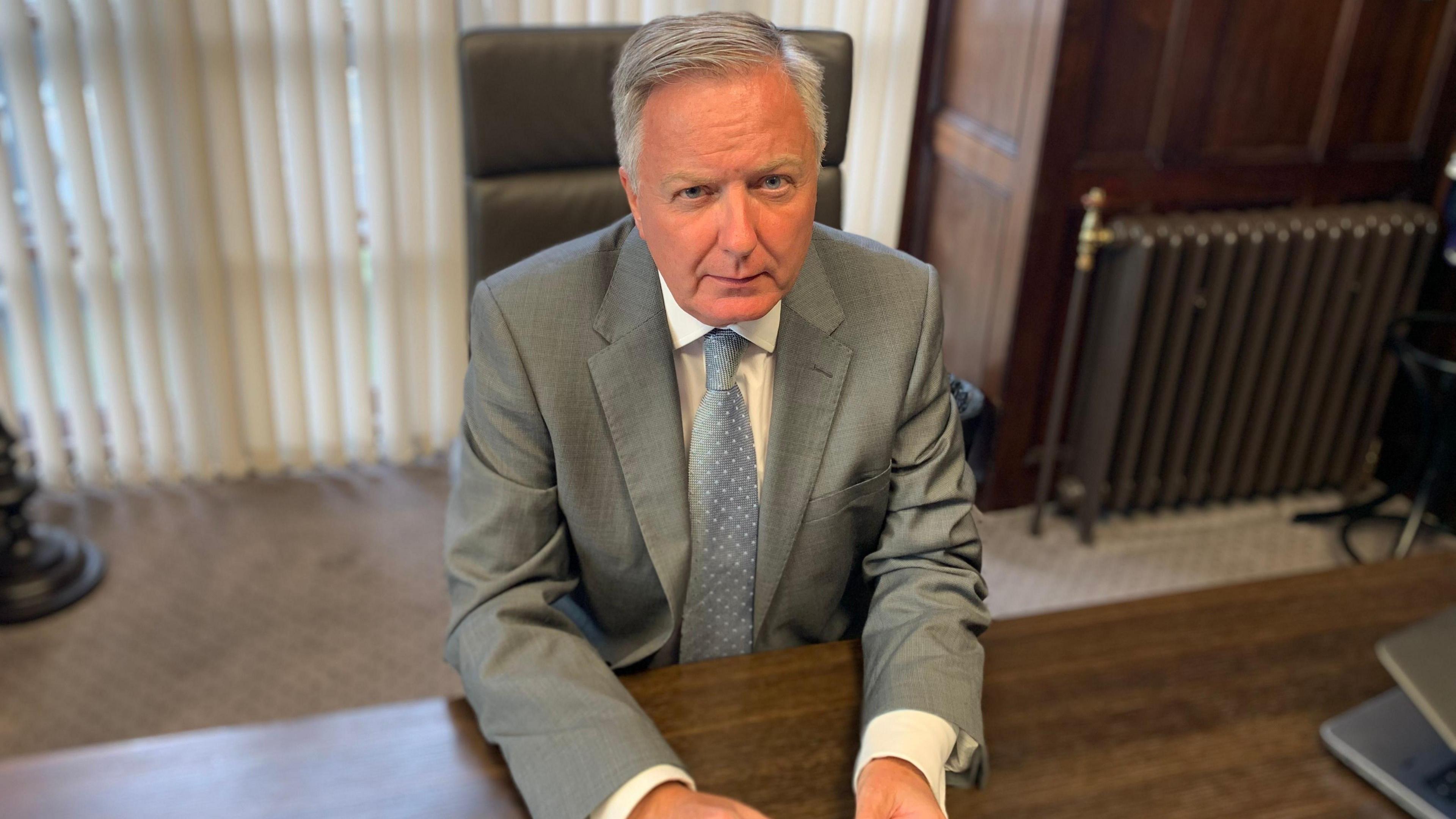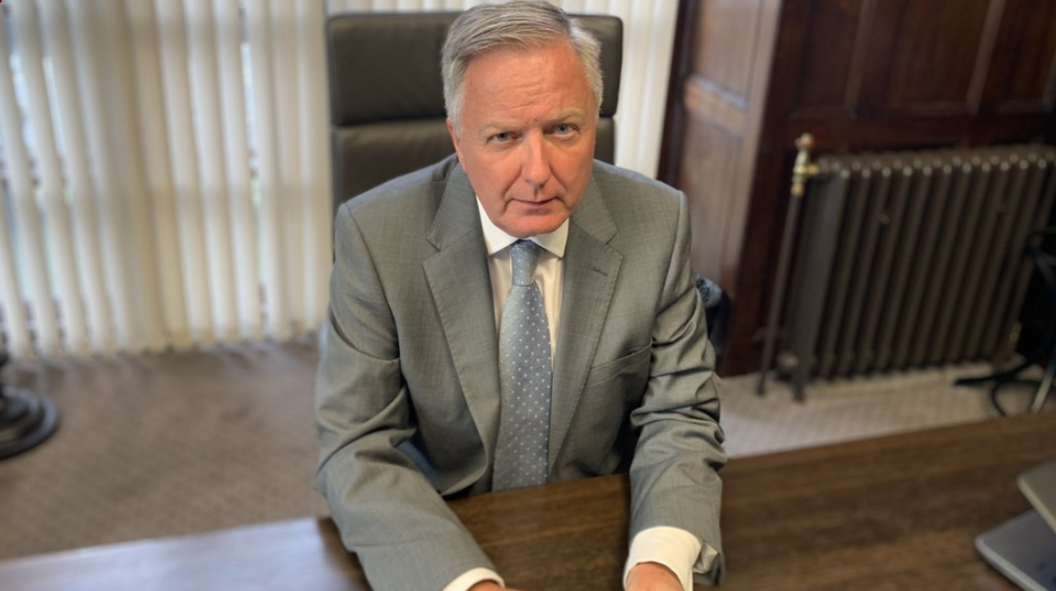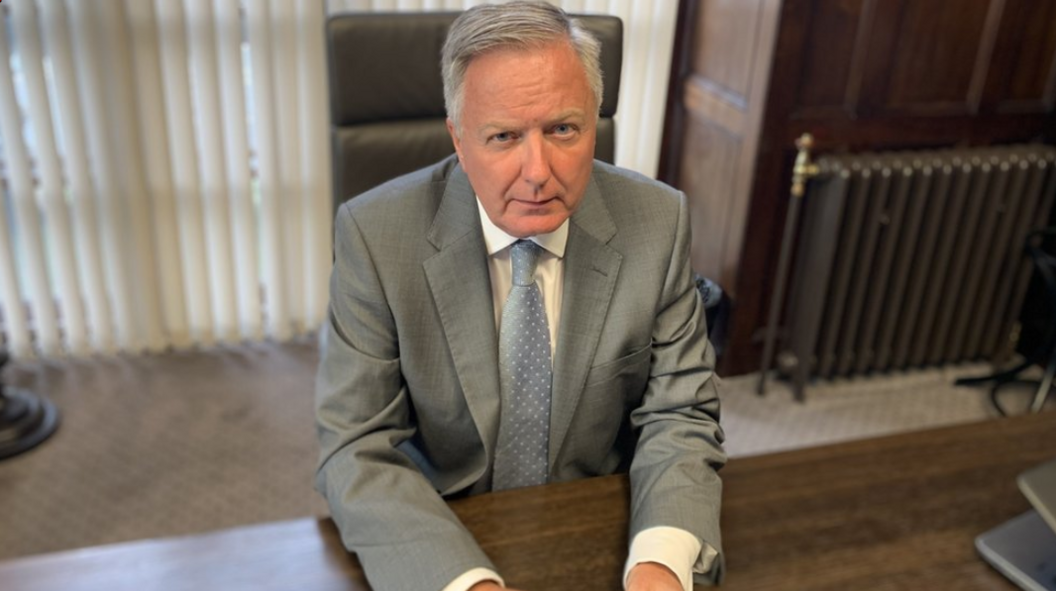Probe finds council leader 'bullied' officers

Iain Malcolm had been leader of South Tyneside Council's Labour group since 2008
- Published
Councillors have agreed with independent investigators that a former council leader "bullied" officers.
Iain Malcolm, who led South Tyneside Council, was accused of contributing to a "toxic" working environment and behaving aggressively towards senior staff.
An independent inquiry found evidence of "unreasonable" behaviour towards two officers, saying it amounted to "bullying, threatening and undermining them".
Mr Malcolm categorically denied all allegations, but the authority's Standards Committee upheld the findings on Wednesday.
He resigned his position in 2020 after complaints submitted by Stuart Reid, the council's corporate director for business and resources, and Nicola Robason, then the council's head of corporate and external affairs, were made public.
The resignation also aligned with a police investigation into his use of corporate credit cards.
Northumbria Police dropped the inquiry due to a lack of evidence, but the outcome of the council's own probe, published earlier in March, found he had "inappropriately" incurred about £19,000 of personal costs.
'Threatened with dismissal'
The separate investigation into bullying allegations, carried out by solicitor Olwen Brown, was launched in response to claims Mr Malcolm had breached the council's code of conduct.
Complaints against him included allegations he had threatened Mr Reid with dismissal if he allowed a complaint about his expenses to proceed.
Mr Malcolm was also described as behaving in a "hostile, threatening and aggressive" way at a meeting, and accused of instructing Ms Robason - who was also the council's monitoring officer - to withhold IT access for some opposition councillors.
One formal complaint letter said officers felt they could no longer carry out their statutory duties, claiming there was a "culture of fear and control driven by the leader".
The investigator acknowledged Mr Malcolm had also been the subject of extensive social media abuse, but found his behaviour was unacceptable.
'Malicious'
A Standards Committee report said Mr Malcolm did not accept the allegations and had suggested council officers were seeking to "deflect attention away from their failure to action specific activities".
The report added Mr Malcolm considers the complaint against him to be "malicious", and reflected his insistence he could "unintentionally raise his voice, due to having a severe hearing impairment".
In a written statement to the committee, he said he had no faith in the council's ability to run a fair complaints' investigation process, and said he would not attend its meeting scrutinising the external investigator's report.
The meeting saw committee members conclude that Mr Malcolm had breached several aspects of the Labour-led authority's code of conduct.
As Mr Malcolm is no longer a councillor, no sanctions can be imposed, the Local Democracy Reporting Service said.
Following the meeting, the council's current leader, Tracey Dixon, said the culture of the authority had improved, external since 2020.
"Change is never easy, but we have set out to create the right foundations for the council and our communities to thrive," she added.
"This has been a challenging period for the council, but we have faced those challenges head on and will continue to do so."
Follow BBC North East on X (formerly Twitter), external, Facebook, external and Instagram, external. Send your story ideas to northeastandcumbria@bbc.co.uk.
Related topics
More stories from BBC North East and Cumbria
- Published15 March 2024

- Published10 March 2024
